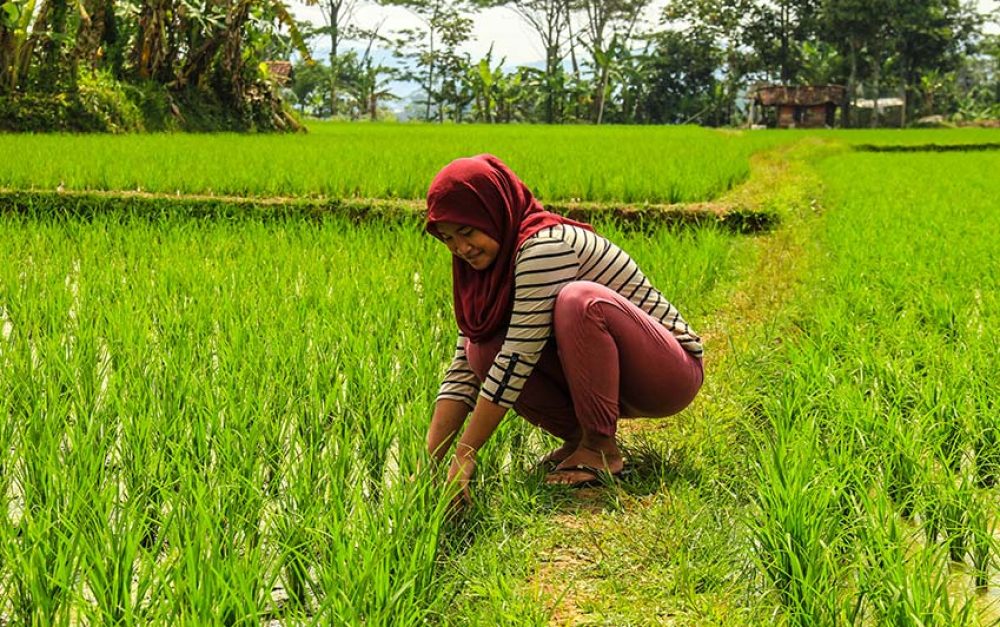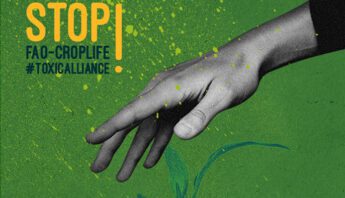Are pesticides needed to feed the world? Not so much, according to a recent report by Dr. Hilal Elver, the UN Special Rapporteur on the Right to Food.
Are pesticides needed to feed the world? Not so much, according to a recent report by Dr. Hilal Elver, the UN Special Rapporteur on the Right to Food.
Elver’s report provides yet more evidence debunking the “we feed the world” narrative that the pesticide/biotech industry giants have been aggressively promoting for decades. The reality, as Elver notes, is quite different:
Reliance on hazardous pesticides is a short-term solution that undermines the rights to adequate food and health for present and future generations.
PAN International supports this report fully. All five PAN regional centers have first-hand experience working with communities facing the hazards of pesticide exposure. We also know well that many farmers practice profitable and productive agroecological farming methods.
Bust that myth
Elver enumerates the many poisoning deaths (more than 200,000 each year, mostly in the Global South) as well as chronic health impacts and environmental hazards of using pesticides in food production. She also points out that despite the rapid upward trend in pesticide use in recent decades, the problem of hunger hasn’t gone away.
The myth that pesticides are necessary to feed the world has already been debunked many times over, but control over the food system by corporations that profit from selling pesticides — and their huge investments in public relations spin — has ensured that the myth remains strongly entrenched.
Another report that directly challenged the “feed the world” myth was the 2008 International Assessment of Agricultural Knowledge, Science and Technology for Development (IAASTD) which took a unique, in-depth and global look at the future of farming. More than 400 experts from around the world investigated how agriculture can most effectively reduce hunger and poverty, improve rural livelihoods and protect human health — while meeting the daunting natural resource challenges facing the world today.
They concluded that agriculture in the 21st century requires a fundamental about-face, with an increased emphasis on agroecological approaches that are resilient, beneficial for the environment, protect human health and provide sustainably high crop yields.
Protecting pesticide profits
The new UN report also reveals that these corporations regularly use unethical marketing tactics to entice farmers into using their products. The global pesticide market is estimated to be worth $50 billion, and Dow, Monsanto, Syngenta et al. spend heavily on lobbying against reforms and regulations around the world.
The Big 6 pesticide corporations’ underhanded tactics to promote their products — and deny the harms caused by the toxic pesticides — are quite clear here in the U.S., as shown here, here and here.
When PAN International led an effort in 2011 to hold the Big 6 accountable for the harms caused by their toxic products, the panel of jurors ruled:
The Tribunal finds on all evidence presented before it the six MNCs responsible for gross, widespread and systematic violations of the right to health and life, economic, social and cultural rights, as well as of civil and political rights, and women and childrens’ rights.
It’s high time to right these wrongs.
Communities in peril
The Special Rapporteur’s report documents how communities across the world are facing harms of exposure to pesticides through their air, water, soil and on their food as residues.
Reports from PAN regional centers over the years have highlighted how vulnerable groups like children are adversely impacted by exposure to pesticides in utero, as well as during critical windows of development. Cancers, developmental delays, brain harm and asthma are just some of the myriad issues that children face when exposed to pesticides.
Farmworkers and rural communities are other groups that face the brunt of exposure and related health hazards. Bees and other beneficial organisms are being devastated by the impact of pesticides as well.
The “safe use” of pesticides is another myth highlighted in the UN report. This confirms findings from PAN International’s 2010 book Communities in Peril, which presents results from surveys of pesticide use and application by farmers in Asia, Africa and Latin America. This on-the-ground research showed that despite claims to the contrary from corporate actors, “safe use” of pesticides is often not possible in real world conditions.
Time to act
PAN International continues to press to phase out of the most hazardous pesticides in use today. Our Highly Hazardous Pesticides list identifies 297 pesticide active ingredients considered highly hazardous based on the criteria developed by the Food and Agriculture Organization and World Health Organization.
The evidence has long been clear, and as the new UN report points out, continued use of synthetic pesticides in agriculture and the harms they cause to people’s health constitutes a fundamental violation of human rights:
With regard to pesticide exposure, human rights law underlines the obligation on States to ensure that people live and work in safe and healthy environments and have access to safe and clean food and water. As such, exposure to pesticides, whether at work, as a bystander or via residue found on food or in water, would violate a person’s right to the highest attainable level of health.
It’s time to take action on these dangerous chemicals, and begin the worldwide shift toward a more resilient, healthy form of agriculture.







